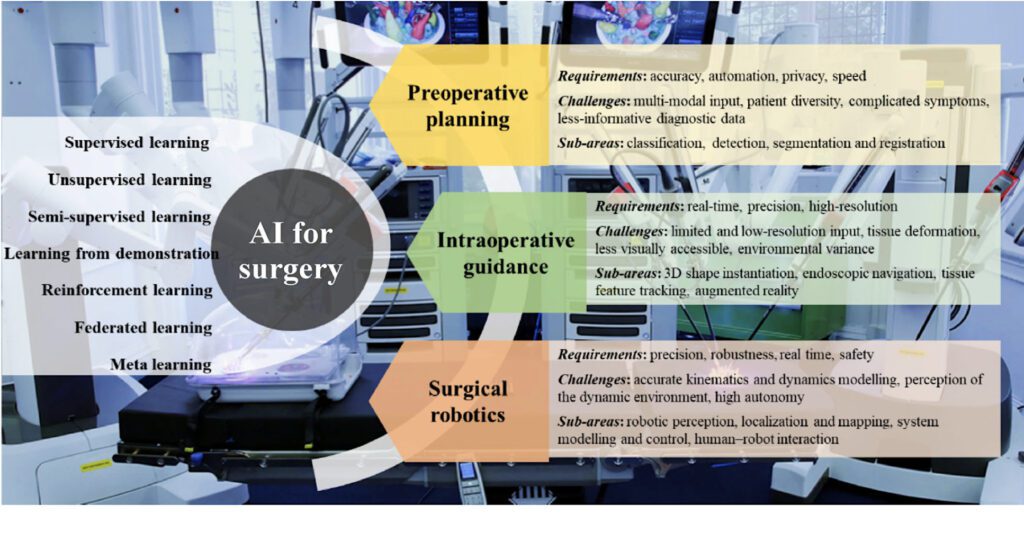This article examines the ethical considerations and challenges posed by artificial intelligence (AI), machine learning (ML), and robotics. Despite the many benefits these technologies offer, there are concerns regarding privacy, bias in algorithms, accountability, and transparency. Privacy is a major issue, as the collection and use of large amounts of data raise questions about how it is being used and who has access to it. Bias in AI and ML algorithms can perpetuate social injustices, highlighting the need for diversity and inclusivity in development and training. Accountability and transparency are crucial to address potential harm. The article suggests developing ethical frameworks and implementing stricter data privacy regulations to navigate these challenges responsibly.
Ethics of Artificial Intelligence, Machine Learning, and Robotics: Navigating the Challenges
Introduction
As technology continues to advance at an unprecedented pace, the fields of Artificial Intelligence (AI), Machine Learning (ML), and Robotics have emerged as powerful forces that are transforming various aspects of our lives. However, with great power comes great responsibility, and the ethical implications of these technologies cannot be overlooked. This article explores the ethical considerations and challenges associated with AI, ML, and Robotics, and highlights the importance of navigating these challenges.
The Rise of AI, ML, and Robotics
AI, ML, and Robotics have experienced significant growth in recent years. From self-driving cars and intelligent chatbots to medical diagnoses and financial forecasting, these technologies have revolutionized industries and made our lives more convenient. However, with this rapid progress comes a range of moral questions and dilemmas that need to be addressed.
The Challenge of Privacy
One of the most pressing ethical concerns surrounding AI, ML, and Robotics is the issue of privacy. With the vast amounts of data being collected and analyzed, there are concerns about how this data is being used and who has access to it. From facial recognition technology to social media monitoring, the potential for invasion of privacy is significant. Striking the right balance between utilizing data for innovation and protecting individuals’ privacy is crucial.
The Bias Conundrum
Another critical ethical challenge is the issue of bias in AI and ML algorithms. These algorithms are trained using vast datasets, and if these datasets are biased, the algorithms will replicate and amplify those biases. This can lead to unfair discrimination and exclusion, perpetuating social injustices. Ensuring diversity and inclusivity in the development and training processes becomes essential to avoid magnifying societal biases.
Accountability and Transparency
AI, ML, and Robotics are often seen as “black boxes” where the decision-making processes are not easily understandable. This lack of transparency can raise concerns about accountability. If an AI system makes a biased or harmful decision, who is responsible? Ensuring that these technologies are accountable and that their decision-making processes are transparent is vital to mitigate potential harm.
Addressing Ethical Concerns
Ethical Frameworks
Developing comprehensive ethical frameworks is crucial in navigating the challenges associated with AI, ML, and Robotics. These frameworks should involve interdisciplinary collaboration between technology experts, ethicists, policymakers, and other stakeholders. By considering the societal and ethical implications of these technologies from the start, we can proactively address potential issues and ensure responsible development.
Data Privacy Regulations
Stricter data privacy regulations can play a significant role in protecting individuals’ privacy and mitigating the risks associated with data misuse. Governments and regulatory bodies should establish comprehensive legal frameworks that define how data can be collected, stored, and utilized. These regulations should also address issues such as consent, data anonymization, and the right to be forgotten.
Developing AI, ML, and Robotics systems that prioritize ethics and responsibility requires a shift in thinking. Ethical considerations should be integrated into the design process from the outset, taking into account potential biases, privacy implications, and transparency requirements. Adopting practices such as diversity in data collection, regular audits of algorithms, and rigorous testing can help ensure responsible and accountable AI systems.
Conclusion
The rapid advancements in AI, ML, and Robotics bring immense potential for innovation and progress. However, navigating the ethical challenges associated with these technologies is paramount to ensure their responsible development and usage. By addressing issues of privacy, bias, accountability, and transparency, we can create a future where AI, ML, and Robotics contribute positively to society while upholding ethical values.
